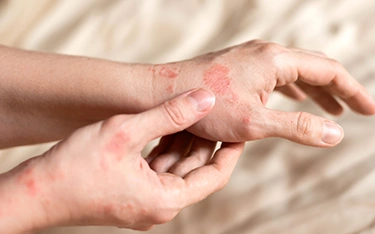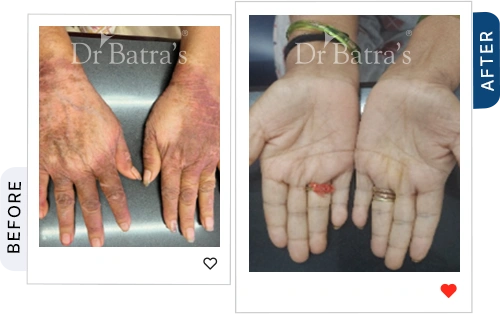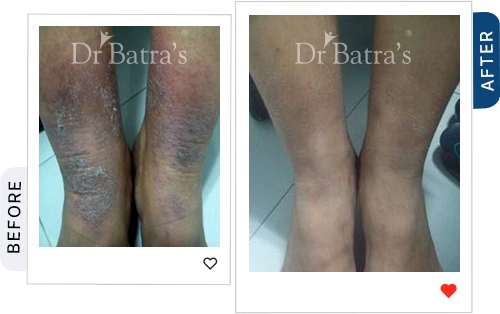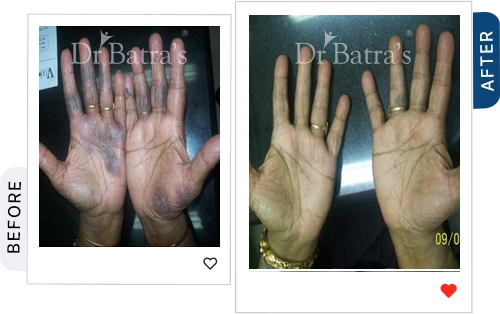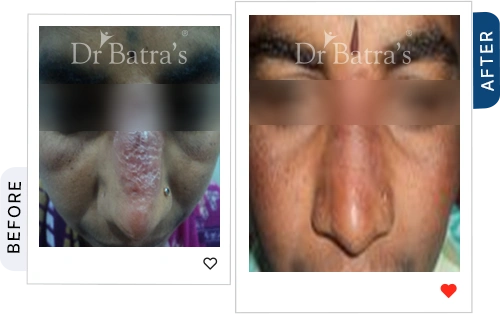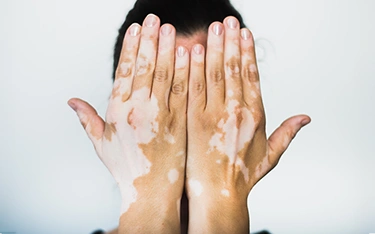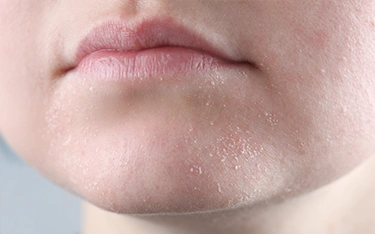You might think eczema is just dry, itchy skin. But in reality, there are different types of eczema, each with unique symptoms, triggers, and treatment needs. That’s why what works for one person might not work for another.
A 2023 report by the Indian Association of Dermatologists revealed that over 15% of people misdiagnose their eczema types, which can lead to flare-ups, infections, and long-term skin damage. Understanding the various types and forms of eczema helps you receive the correct treatment, prevent complications, and achieve faster results.
What Is Eczema & Why It’s Not Just One Condition
Eczema is a chronic inflammatory skin condition that can appear in multiple forms depending on genetics, triggers, environment, and immune response. Some different kinds cause flaking and itching, while others result in blisters, oozing patches, redness, or hardened skin. Recognising the common types of eczema, such as atopic dermatitis, contact dermatitis, and nummular eczema, is essential.
Your eczema pattern, where and how it appears on your skin, can also differ based on age, lifestyle, and season. Accurate diagnosis of different eczema types through a proper eczema differential diagnosis ensures that you receive treatment targeted to your specific condition rather than a one-size-fits-all solution. Knowing your eczema types and different eczema forms allows for more effective management, reduces flare-ups, and improves skin health over time.
7 Most Common Types of Eczema & Their Symptoms
- Atopic Dermatitis
- The most common type, often starting in childhood.
- Red, itchy, dry skin.
- Common on face, elbows, and knees.
- Linked to asthma, hay fever, and genetics.
- Contact Dermatitis
- Triggered by direct contact with an allergen or irritant.
- Red rash, blisters, or burning sensation.
- Caused by soaps, perfumes, metals, or plants.
- Seborrheic Dermatitis
- Affects oily areas like the scalp, face, and chest.
- Greasy, yellowish patches.
- Commonly confused with dandruff.
- Dyshidrotic Eczema
- Tiny, itchy blisters on palms, fingers, or soles.
- More common in hot and humid climates.
- Triggered by sweat or allergens.
- Nummular Eczema
- Round, coin-shaped patches on legs, arms, or torso.
- Itchy, crusty, and often mistaken for fungal infections.
- May follow insect bites or skin injuries.
- Neurodermatitis
- Often related to stress or anxiety.
- Thick, leathery skin patches.
- Intense scratching.
- Stasis Dermatitis
- Occurs in the lower legs due to poor circulation and varicose veins.
- Swelling, redness, and skin darkening.
- Occasional ulcers.
What triggers different eczema types?
1. Stress (Atopic dermatitis, Neurodermatitis/Lichen simplex)
Stress hormones amplify inflammation and the itch, scratch cycle. Flares often appear in flexures (elbows, knees), neck, wrists, or ankles with thickened, lichenified plaques. Managing stress can reduce relapses across the common types of eczema.
2. Heat & Sweat (Dyshidrotic eczema, “summer” flares)
Hot weather, workouts, tight gloves/shoes, and occlusive fabrics trap sweat. Triggers lead to tiny, intensely itchy “tapioca-like” vesicles on palms, sides of fingers, and soles. Nickel sensitivity and friction can worsen this variety of eczema.
3. Oily Scalp or Hormones (Seborrheic dermatitis)
Hormonal shifts (such as puberty and postpartum) and oily skin favour Malassezia yeast overgrowth. The eczema pattern is characterised by greasy, yellowish scales on the scalp (dandruff), eyebrows, sides of the nose, ears, and chest; infants may also exhibit cradle cap.
4. Contact with Irritants/Allergens (Irritant or Allergic contact dermatitis)
Repeated exposure to soaps, detergents, fragrances, preservatives (e.g., MI), hair dyes, rubber/latex, or metals (nickel) causes sharply bordered rashes at contact sites (hands, wrists, ears, under watchbands). Patch testing helps pinpoint triggers among different eczema types.
5. Food Sensitivities (Mostly in children with atopic eczema)
A minority of children flare up with specific foods (e.g., eggs, milk, peanuts). Reactions may be immediate (hives) or delayed eczematous flares. Use supervised elimination/re-challenge; don’t self-restrict diets. This is one of the different kinds of trigger patterns, not the cause for most.
6. Weather Changes (Cold, dry air; low humidity)
Winter air and indoor heating can dehydrate the skin, weakening the barrier and leading to rough, scaly plaques, often found on the hands and shins. Rapid climate shifts can also flare several types of eczema and different eczema presentations.
Why this matters: Knowing which triggers map to which different eczema types (the various forms of eczema) helps you personalise care and avoid flare-ups. For accurate eczema differential diagnosis and to distinguish eczema from look-alikes such as psoriasis, fungal infections, or scabies, consult a dermatologist.
Dr Batra’s® pro tip:
Opt for cotton or linen to minimise friction and prevent itching caused by rough fabrics.
